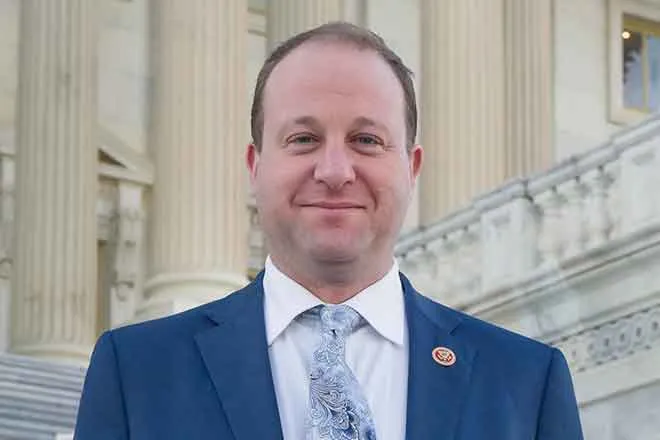
Nebraska auditor raises red flag over rising cost of rented office space for state workers
State government is paying about 37 percent more to lease commercial office space for employees today than five years ago — a hike from $16 million to $22 million that the Nebraska state auditor described Monday as “far more than necessary.”
“It is important to note that this ongoing acceleration in the cost of renting government office space has occurred despite the number of state employees remaining relatively unchanged,” State Auditor Mike Foley said in a statement.

Foley, saying that he doubted that the rising costs would abate any time soon, outlined his office’s concerns in a letter Monday to the Legislature’s Legislative Performance Audit Committee.
He said he was surprised to learn during the review that the state leases 1.5 million square feet in 193 commercially owned buildings in 37 Nebraska counties.
His team offered recommendations “to avoid throwing taxpayer dollars down the drain in excessive rental payments” — including a possible study on whether the state should consider the purchase or lease-purchase of additional buildings and whether another state office building should be constructed in Lincoln.
“There is a lot of space around town we could pick up at a very good price,” he said.
Omaha building in focus
Foley pointed out specific situations, such as an abandoned multimillion dollar office building site in Lincoln that could make a difference. He also questioned the “financial responsibility” of selling a well-known, nearly full state-owned office and parking complex in downtown Omaha.
Downtown Omaha fixture could change hands
A state office building with a long history in the developing downtown Omaha business district and riverfront redevelopment area may be changing hands.
Lee Will, director of the Nebraska Department of Administrative Services, said in a letter to a legislative committee that his team is pursuing a possible sale of the state-owned office building at 13th and Farnam Streets.
Will noted that the complex is in a “high-interest area for Omaha development.”
The complex has 175,706 square feet of above-grade square footage and an attached five-story parking garage.
It is near the rising $600 million Mutual of Omaha office tower, the recently completed, multimillion-dollar overhaul of the downtown public park system and is along the Omaha streetcar route.

Will stated in the letter that a sale would not happen unless the state found a larger facility to fit other state employees based in the area that could be bought from the proceeds of the existing building.
Attached to Foley’s six-page letter is a three-page response from Lee Will, director of the Department of Administrative Services, which manages state-owned facilities and serves as administrator for property leased by the state.
Lee addressed his missive to the same Performance Audit Review Committee, chaired by State Senator Myron Dorn of Adams, clarifying or rebutting what the auditing team laid out.
Of the 37 percent rent increase, Lee said several “significant operational changes” have shifted costs from other places to leased space. Those included the end of a child welfare contract in the Omaha area, which had the state “reabsorb” leased space to support the new staff.
Among other shifts, he said, was the opening of the Lincoln Youth Rehabilitation and Treatment Center, multiple leases for swing space to accommodate a Capitol HVAC project, and rental shifts from the county to the state for three Department of Motor Vehicle Centers.
Also, Will said, the Omaha State Office Building, which houses about 450 employees at 13th and Farnam Streets, would not be sold unless a replacement is found to buy and consolidate other area state employees.
‘Critical asset’
To the auditor’s recommendation on possible construction of another state office building in the Capital City, Lee said that would be “cost prohibitive compared to currently available buildings.”
In its report, Foley’s team offered background on a state-owned property centered at 17th and K Streets in Lincoln, noting that the state spent more than $2.2 million on architectural work for the proposed construction of a state office building at that site, which in 2019 was estimated to cost about $56 million.
The auditor cited a news story of that era that said the state projected a $35 million savings over 30 years compared to leasing.
“Even with such significant anticipated savings, DAS did not proceed with the construction of the building, and the land at that location remains vacant and is still owned by the State of Nebraska,” the auditor’s letter said.
Lee, in his counter letter, acknowledged that the intent originally was to construct an office building and parking garage through a public-private partnership. But he said the 2019 estimate was $92 million, including the $56 million construction cost plus interest on a 30-year loan — “not significant cost savings for a building built with no tenants.”
Meanwhile, he said, the property remains a “critical asset” to the state, as the site of the State Capitol building’s geothermal well field.
Foley, in an interview Monday, appeared to soften the stance on that project. He said the state made the right decision to pass on construction at the uncertain time of COVID-19. Now, he said, he believes it could be more financially smart to buy underused office property to save “precious taxpayer dollars” in the long run.
As budget gap looms
His comments come as the state struggles with closing a budget gap.
Just two weeks ago, Foley detailed the “staggering” impact of corporate tax incentives on state budget options. In a 20-page letter to state senators, he wrote that over the next four fiscal years, Nebraska companies stand poised to call in more than $1.5 billion in corporate tax incentives, an expense he said would reduce state general funds.
He also highlighted the state’s “steadily increasing delinquent tax balances,” which could constitute “hundreds of millions of tax dollars owed but not collected” by the Nebraska Department of Revenue.
Regarding his latest red flag to lawmakers, Foley acknowledged that the initial cost of buying office buildings to replace commercial leases would be pricey. But he believes that the “long-term savings to the state should prove well worth the investment.”
Foley said the Auditor’s Office is prohibited from conducting unauthorized performance audits of state agencies, so the letter to the Legislature’s Performance Audit Committee was intended as an alert.
He said a 2024 occupancy report provided by DAS showed an overall occupancy rate of 97 percent for seven state office buildings controlled by the department. Other state-owned buildings are occupied by state workers, but are controlled by individual agencies, such as the Department of Transportation. Foley said his study was limited to properties managed by DAS and suggested that his office could assist in an expanded study if warranted.
According to Foley’s review:
- For the past two fiscal years, the state paid $20.3 million and nearly $22 million, respectively, for commercially leased space. Compared to five years earlier, in 2018 and 2019, those costs now are about 37 percent higher.
- Renting space at one of the largest, priciest commercial office buildings used by state workers at 1010 Lincoln Mall costs $33.43 per square foot, compared to $8.33 in a state-owned building at 301 Centennial Mall.
Parking facilities
The review also looked at state parking facilities and noted that state employees who work at certain locations in commercially rented space in Lincoln are not charged for parking.
Foley recommended that the legislative committee consider a study to determine if state parking charges are necessary in garages that are fully paid off, and whether rates charged for state employee parking are reasonable.
In response, Will said parking rates for state employees range from $24 in surface lots to $50 a month in garages, compared to $85 in City of Lincoln parking garages.
Will said his department overall works to keep lease rates low, and noted that rent that is collected also helps pay for maintenance workers, building utilities and equipment repairs.
He said the department actively looks for potential ownership opportunities and that several locations currently are under consideration.
As an example, Will said, his department bought real estate for the Nebraska State Patrol last year, saving more than $12 million compared to new construction.
He said he looks forward to working with the auditor on increased government efficiencies.
















